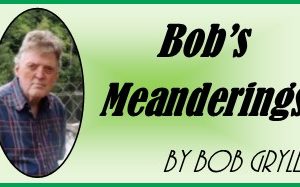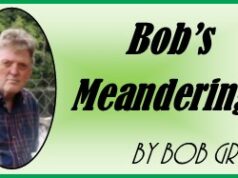Overheard in a coffee shop: a local farmer explained how his horse can ‘smile’. He continued, “He even acts offended if I don’t smile back at him.” I didn’t know whether to be embarrassed for the farmer or curious about the horse.
It seems that scientists found horses to have specific facial expressions, and they’re very similar to ours. “Horses and humans are distantly related but with such differently shaped faces, I thought there would be really no similarities,” says Jennifer Wathan, a PhD candidate in social cognition and communication in horses. It turned out there was a surprising amount of similarities. Humans make 27 separate facial movements, chimpanzees make 13 and dogs 16. But horses had even more; 17 facial movements in total. Wathan also said, “Most people who have horses know they are expressive and use their ears a lot but I was really surprised by the extent to which they use their face.” Horses have a huge facial repertoire. Being able to read human emotions is an extremely rare trait in the animal kingdom – horses are one of those that do.
Until now, it was assumed dogs were one of the only animals that shared our ability to identify the difference between a smile and a grimace. But for the first time, horses have been found to be canny enough to tell the difference between a jovial and a snarling face.
For example, horses raise the inner brow of the eye and widen their eyes when they’re scared or in generally negative situations, and so do humans. Plus, they are more likely to use the left eye to look at an angry face. Heart rates quickened when a face was snarling. Horses tend to “smile” as a submissive gesture. Previous research showed horses to rely on facial expressions to communicate with one another. They are predominantly visual creatures with strong eyesight.
One summer, I had registered my son (9 years-old) in horseback riding lessons. One particular day he was in an ugly mood. His regular mount shied away from him each time he got near. I now realize that the horse sensed his negativity and reacted accordingly. If it was the horse with the negative attitude, it would always say ‘neigh’ to every instruction received.
I was young too, the first time I sat on a horse. It was without a saddle and required a stepladder to mount it. Once up and holding the reins, the horse wouldn’t budge an inch. Its owner must have been one of those horse-whisperers you see on television. After a low-key conversation into the horse’s ear it started moving like it should have.
It’s not yet clear why there are similarities between humans and horses. Whether animals communicate intentionally is still a huge and fairly contested issue. One shared expression is a dog who looks at you with those puppy-dog eyes. Dogs do this to get attention. As one study of dogs in shelters disclosed, dogs who raised their eyebrows were adopted faster than dogs who didn’t.
There are number of ways to teach a horse to smile. However, cold-blooded breeds like Clydesdales are easier to work with than a hot-blooded thoroughbred. One that usually works for new horses is to tickle its lip until it opens. Tickle around until they start to twitch, then stop. Try this a few times a day. When they do begin to actually twitch or open their lip, praise them and maybe start with treats. Another trick is just one quick poke on my horse’s top lip, then when the lip does twitch, reward it with a treat. Remember not to spend too much time on this every day or the horse will get bored or frustrated. It can also become too treat-oriented if you are not practical.
No one did it better than Mr. Ed – The Talking Horse, a television star back in the sixties. He could talk without an accent and even display different temperaments for various situations. It was years of watching the show, constantly dazzled by Mr. Ed’s talents, that no other horse possessed, before I realized it was all entertainment. His words were a voice-over and his significant lip movements occurred after he was trained to react when his front hoof was tapped.
Sometimes it is the simple nuggets in life that bring out the best in us. I’d rather see a horse smile than a politician. The horse’s smile is trustworthy.





![Kenopic/Smith Auction [Paid Ad]](https://whitewaternews.ca/wp-content/uploads/2018/10/advertising-100x75.jpeg)

